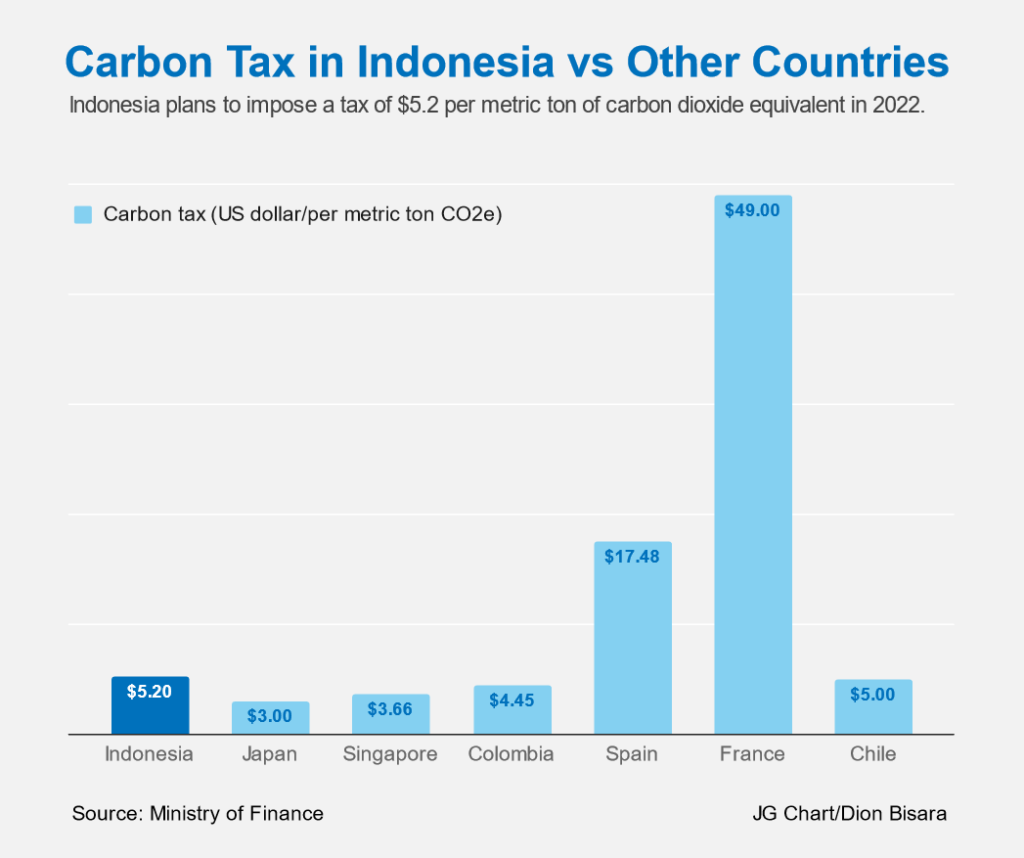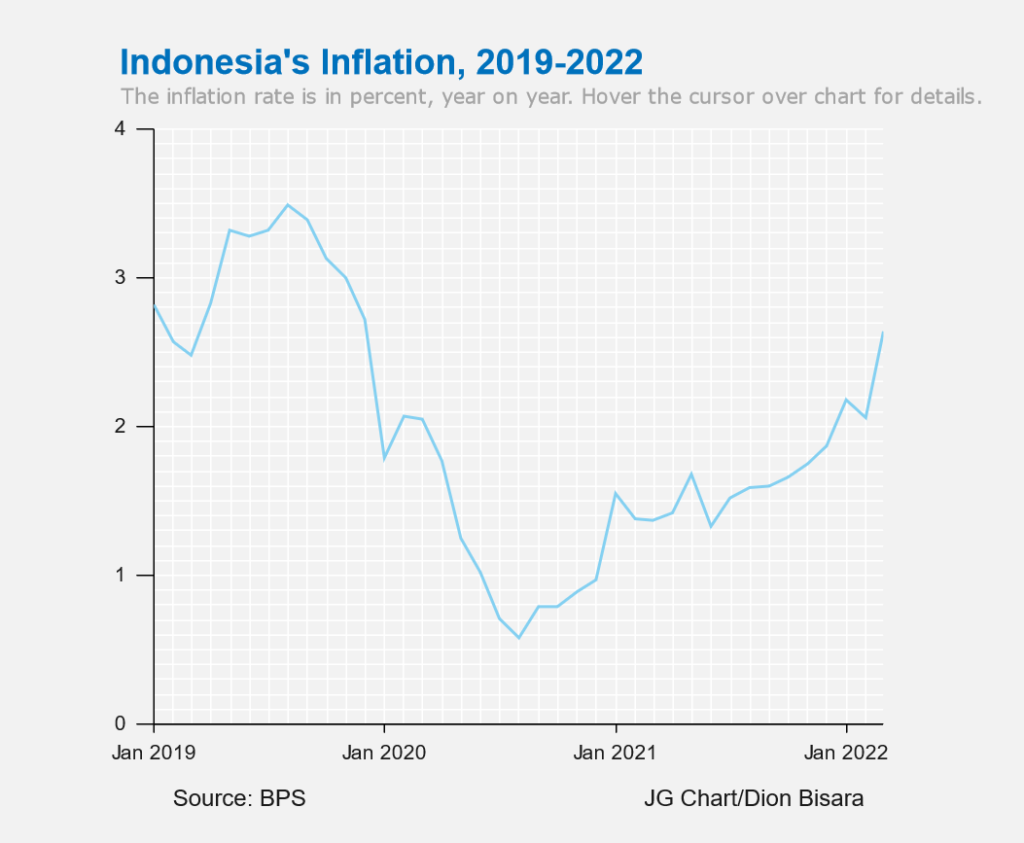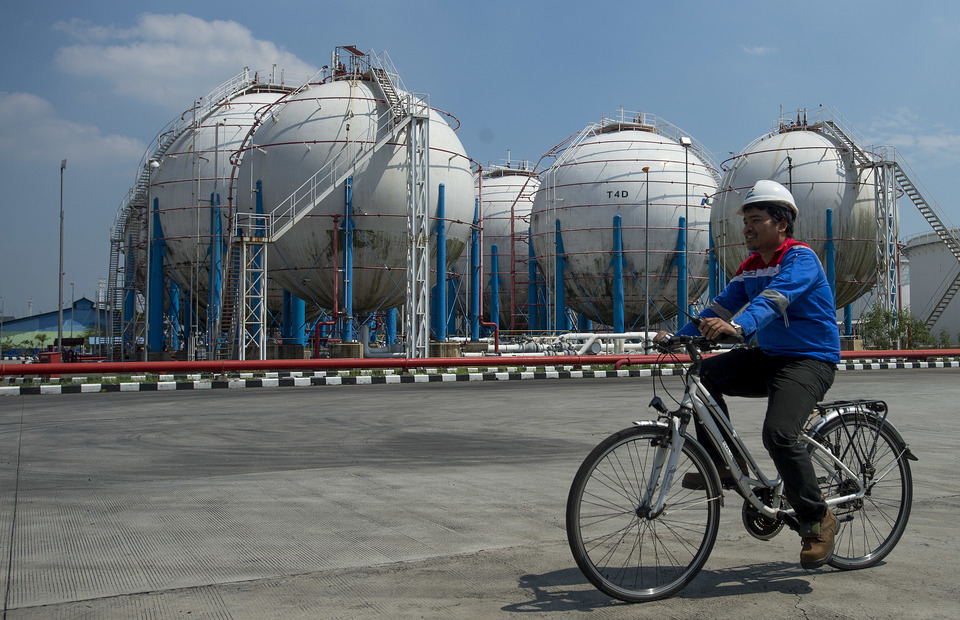Jakarta – The government’s decision to delay carbon tax implementation by three months has come as a relief to Indonesia’s economy, which already had to cope with rising fuel, cooking oil, and soybean prices as well as a value-added tax rate that increased by one percentage point this month.
Minister of Finance Sri Mulyani Indrawati told the lawmakers on Thursday that the government decided against implementing a carbon tax on April 1. She admitted that the government needs three more months to make the new tax consistent or compatible with existing rules and the country’s goal to reach the zero-emission goal by 2060.
“The carbon tax implementation should have been carried out on April 1, 2022. But we still have to synchronize the roadmap while ensuring the implementation can go well,” Sri Mulyani said.
Under the initial plan, the government planned to introduce a $2.1 tax per metric ton of carbon-equivalent (CO2e) emission, starting with the coal-fired power plants. But Sri Mulyani now said that the rate seemed too low compared to other countries.

Sri Mulyani said unbalanced carbon taxes worldwide would create “leakages” and maybe slow down Indonesia’s effort to reach the zero-emission goal.
“The price difference is very unbalanced. In one country the price is only $3, in another, it is $25. There are even countries with a price of $45. Based on several estimations, for the world to succeed in overcoming climate change, the carbon price should reach $125, ” she said.
According to data compiled by the Ministry of Finance, Indonesia’s carbon tax rate would be among the lowest in the world. Japan, one of the main buyers of Indonesia’s coal, imposes a $3 carbon tax. Columbia set the tax at $4.45, while France at $49.
Sri Mulyani said Indonesia would implement the carbon tax carefully and gradually. Especially now, all countries worldwide are still struggling in a pandemic situation and are trying to restore the economy.
“We ensure that the implementation can run well and not disrupt our economic recovery. This is what we are continuing to do. When we recover the Indonesian economy, it does not mean that we are not prepared because the climate change disaster is almost certain to occur given the trend of rising temperatures around the world,” she said.
Inflation pressures
The government’s decision to delay carbon tax implementation also came when staples and energy prices rose. In March, the inflation accelerated to 2.64 percent, the highest level in more than two years, from 2.06 percent a month earlier. The Central Statistics Agency (BPS) noted that cooking oil, whose price rose by more than 40 percent in the last month alone, contributed the most to the March inflation. The long rainy season also curbs chili supply, driving up its price.

The government also implemented two policies that economists said may accelerate inflation further into April. On April 1, the state-controlled Pertamina increased Pertamax prices by 39 percent to Rp 12,500 per liter after keeping its price amid rising crude oil prices in the past year.
The Ministry of Finance also increased the value-added tax rate by one percentage point to 11 percent on Friday.
Brokerage firm Pilarmas Investindo Sekuritas wrote to clients Friday that the policies would surely increase inflationary pressure. “Fortunately, the carbon tax was delayed,” the brokerage reported.
“It’s said that 2022 would be the year of returning inflation, marking economic recovery. But, it needs to be managed so it would not be so volatile,” Pilarmas wrote.

